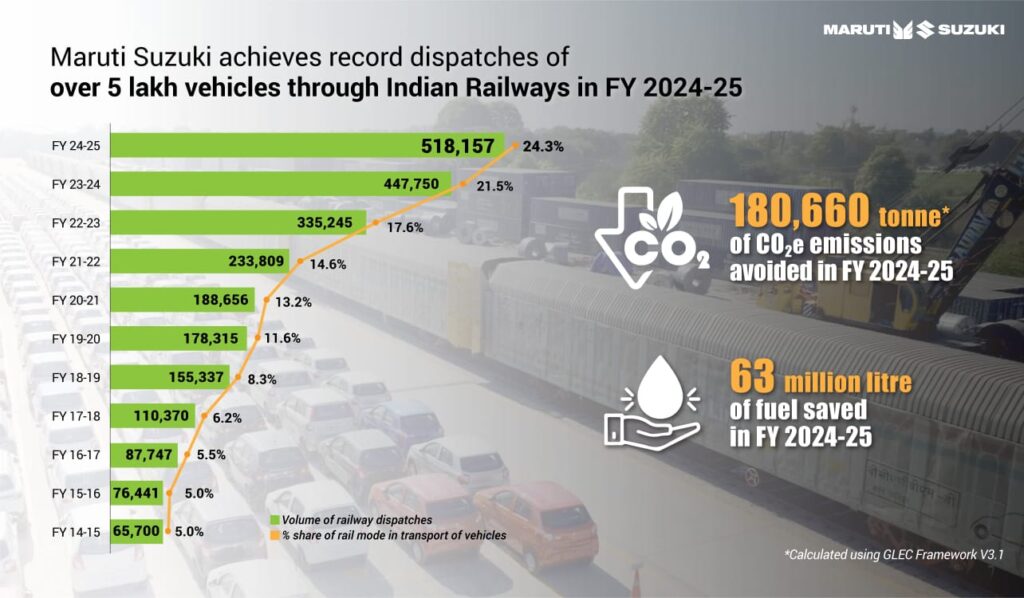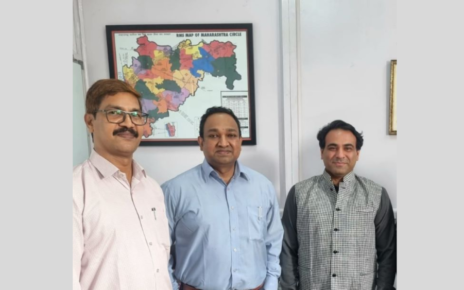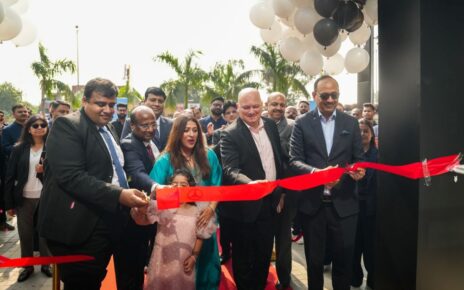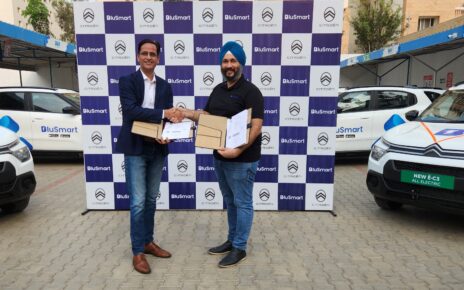In a major boost to its green logistics strategy, Maruti Suzuki India Limited has announced the dispatch of 5.18 lakh vehicles via Indian Railways in FY 2024–25, marking its highest-ever annual volume transported by rail. This milestone accounts for approximately one-fourth of the company’s total dispatches for the year and further reinforces Maruti Suzuki’s leadership in adopting sustainable transportation practices.

Rail transport offers a lower-emission and more energy-efficient alternative to road logistics. Maruti Suzuki has effectively leveraged this mode to reduce over 1.8 lakh tonnes of CO₂e (carbon dioxide equivalent) emissions and save more than 63 million litres of fuel in FY 2024–25 alone.
Currently, the company dispatches vehicles through more than 20 rail-linked hubs, which collectively
serve over 600 cities across India. Additionally, the ports of Mundra and Pipavav, used for vehicle exports, are seamlessly connected via railway, enabling efficient domestic and international logistics. Since the company began using rail transport in FY 2014–15, cumulative rail dispatches have grown nearly eight-fold, reaching an impressive total of around 24 lakh vehicles.
Maruti Suzuki was India’s first car manufacturer to obtain an Automobile Freight Train Operator (AFTO) licence in 2013, paving the way for dedicated rail-based logistics. Commenting on this latest achievement, Hisashi Takeuchi, Managing Director & CEO, Maruti Suzuki India Limited, noted that reducing carbon emissions remains a top priority across both product and operational levels. He emphasised that the company plans to increase the share of vehicle dispatches through railways to 35% by FY 2030–31 as part of its long-term sustainability roadmap.
A key enabler in this green transition has been the expansion of dedicated infrastructure. In 2024, the Hon’ble Prime Minister of India, Shri Narendra Modi, inaugurated the country’s first in-plant automobile railway siding at Maruti Suzuki’s Gujarat manufacturing facility – a major step forward in integrating clean logistics at the factory level.
Today, the company operates more than 40 Flexi Deck rakes, with each rake capable of transporting around 300 vehicles per trip, drastically improving efficiency and reducing the carbon footprint of vehicle distribution.
This continued shift to rail-based logistics underlines Maruti Suzuki’s broader commitment to sustainable mobility, not just through its vehicles but also through every link in its supply chain.




